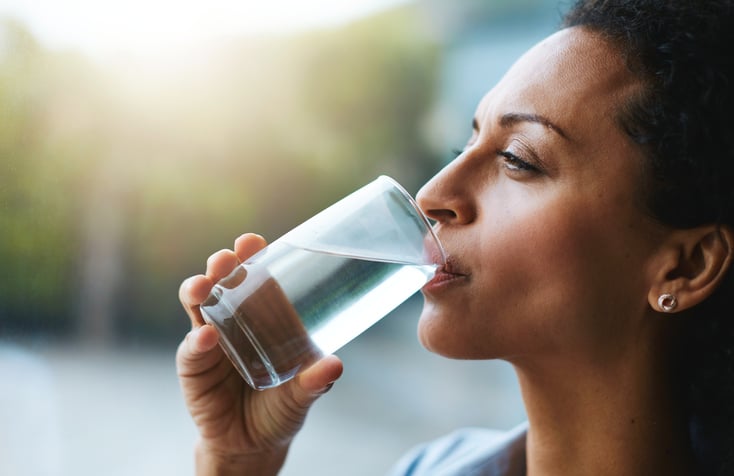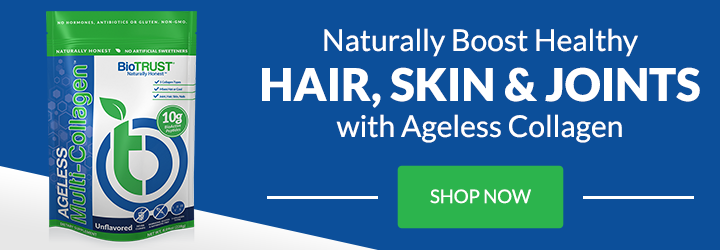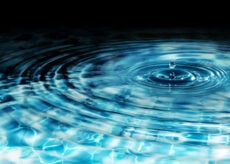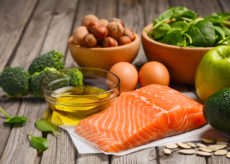5 Scary Signs You’re Not Drinking Enough Water

Besides being thirsty, what are the signs that you’re not drinking enough water? The answer may not be exactly what you expect. Your body is made up mostly of water—about 55 to 60%. Your blood is about 92% water while your lungs are 83% water, and your brain is comprised of about 73% water. You can survive around three weeks or more without food, but just three days without water, and you’re a goner.
So, what happens when you’re dehydrated, and why is it important to keep your water levels in balance? Well, it turns out that in the body, water wears many hats. Some of its many jobs include:
- Transporting nutrients
- Helping the body remove waste
- Regulating your body’s temperature
- Lubricating tissues
- Acting as a shock absorber for your joints
Since water is such a critical component in the makeup of our bodies and is key to the body’s proper functioning, it’s important to know what to look for when it comes to dehydration. So, you can avoid not drinking enough water and thus the nasty side effects. Pay attention to some of these more unusual signs as even being just 1% dehydrated can have negative effects:
5 Signs You’re Not Drinking Enough Water
1. Your Skin, Hair, and Nails Are Dry—sometimes putting on lotion and conditioning your hair just won’t cut it. Putting lubricants on the outside of your body cannot always do the job of lubricating your body—especially if you’re not getting lubricated from the inside.
When you’re not drinking enough water, your body can’t keep your tissues supple. Shriveled cells can give you a dry, aged look—something you probably want to avoid. And, brittle hair and nails are not a sign of youth (rather, they’re a sign of the opposite). So, stop spending a lot of money on high-priced moisturizers if your skin, hair, and nails look dry and brittle because, in reality, what you really likely need to do is ramp up your water intake.
2. You’re Tired—you may notice yourself feeling unusually lethargic and just not completely on point. When this happens, your body could be in the process of extracting the water it needs from your bloodstream. Thicker, less viscous blood does not provide adequate oxygen to your system. That can lead to fatigue and even poor sleep.
3. You Feel Sick—did you know that if you’re not drinking enough water, and it becomes severe, it can make you feel physically ill? It’s true. Being dehydrated can make you cranky because in addition to headaches, you may experience fever, chills, fainting, rapid heartbeat and breathing, dizziness, and confusion.
One way to watch for dehydration is to keep a close eye on the color of your urine. Concentrated, darker yellow urine often means you’re dehydrated. And having less urine output than normal can also be a sign that you’re not drinking enough water and need to up your intake. Remember, the higher the concentration of your urine, the harder it is for your kidneys to process it. If your kidneys are struggling, you’re not able to rid your body of toxins that you normally would. This can leave you susceptible to illness and a compromised immune system.
Keep in mind, some foods, supplements (like riboflavin), and various medications can make your urine more yellow. So, in this case, a darker urine may not necessarily mean dehydration, but if it’s accompanied with some of these other symptoms, then you may want to monitor your water intake and drink up.
4. You’re Hungry—yes, it’s true. When you’re feeling hungry, you may actually be thirsty. Try drinking water to satisfy your hunger first before turning to food. Next, choose foods that are high in water content to provide both hydration and nutrients your body desperately needs. Cucumbers and lettuce top the list with 96% water, closely followed by zucchini, radishes, and celery, which are made up of nearly 95% water. But there are many fruits and vegetables that have high water contents.
Did you know that sometimes food cravings are just a cry for water? Since your liver needs water to break down and release glycogen into the bloodstream, a lack of water can mean less glycogen availability and thus an irresistible urge to reach for sweets.
Plus, filling up on water is a great way to squash hunger pangs. Once you fill up your stomach, there is also less room for food, and you’re less likely to overeat. Try drinking a few sips of water between bites of food to help pace yourself during meals and also ensure you don’t experience these symptoms of not drinking enough water.
5. You’re Not Aging Well—dry, flakey skin; stiff joints; dry mouth and bad breath; reduced mental clarity; sunken eyes; stiff, achy joints; weakness… these are just a few of the symptoms associated with both aging and dehydration.
Along with dry, less-than-supple skin is skin that looks lackluster. Again, when there’s insufficient water in your system, you can’t sweat, and sweating is the body’s way of naturally cleansing your skin. Dirt and blocked pores can leave you with unsightly breakouts and uneven, dull skin, which is never a good look.
Remedies for Not Drinking Enough Water
So, you’ve discovered you really don’t want to be dehydrated. Now, what? Well, first and foremost, if you’re not drinking at least 6 – 8 glasses of water a day, it’s time to start.
And, that’s a minimum requirement. If you’re already experiencing dehydration, eight is not enough! Better yet, 9 – 12 cups of pure water a day is a much better goal and more appropriate for health and hydration purposes. According to the European Journal of Clinical Nutrition, nonactive adults should drink a minimum of 1.5 liters of water per day. Climate, physical activity, diet, and health can all determine your water needs. If you’re physically active or live in a warm climate, you will need even more water to stay hydrated.
Try keeping a water bottle with you everywhere you go. Before you know it, sipping will become a habit, and you’ll easily get in your water requirements each day. If you don’t care for plain water, try jazzing it up with fresh lime, lemon, or cucumber slices. This can change your plain glass of water into a refreshing cocktail.
The bottom line is, if you want to look youthful, stay healthy, energized, and lean, then it’s time to drink up.







